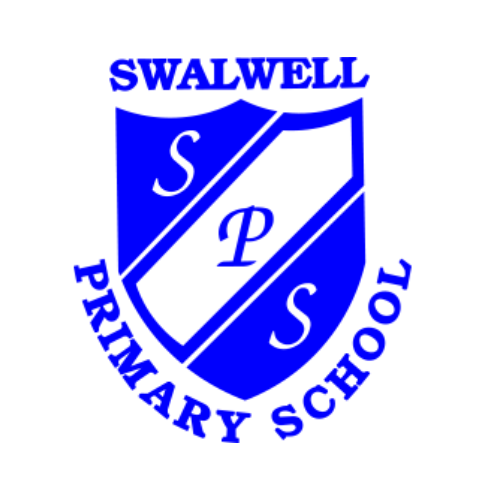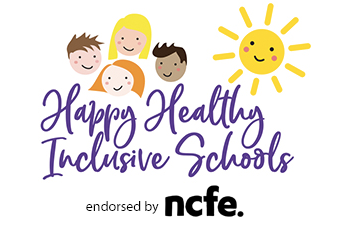SEN Information

Swalwell Primary is a constantly evolving school. We are always striving for the best for our children, families and staff, and always make sure that we provide a happy and positive environment where everyone feels able to fulfil their potential in all areas. We have two ARMS provisions in school: one for learners with Physical Disabilities and another for learners with Autism.
At Swalwell Primary, we aim to open up the world and help everyone find ways to achieve, be successful and be proud of themselves. Personal progress is at the heart of our school; Each child and adult is seen as a valued individual with much to give to the world. We believe it is our job to help everyone discover their own skills and talents; help to develop and improve these, and to instil self-confidence, motivation and determination that will take them as far as they can possibly want to go in life.
We endeavour to make sure every child receives the education that is most appropriate to their needs. Some children have significant SEND, whether that is in terms of concentration, understanding, speech and language, memory, processing or other challenges. In order to make progress, these children require a high level of adult support, an adapted curriculum and, on occasion, a timetable that suits their individual needs.
|
|
Useful Documents
Please find below information leaflets from Gateshead regarding SEND Support and the EHCP process.
Below are the following links:
- Gateshead Local Offer which has a wealth of information regarding SEND services in Gateshead
- SENDIASS offers free impartial, confidential information and advice for young people and their parents and carers
- the Parent Carer Forum is an organised volunteer support group of and for parents and carers of children and young people who have a variety of special educational needs and disabilities
- SEND-Support-Guidance-An-Information-Leaflet-for-Parents-and-Carers
- Education-Health-Care-Plans-EHCP-Annual-Review-Process
Please find below our school inforamtion report that outlines the support for SEND that you can expect from us at Swalwell Primary School.
Please click the below links for further information on SEND at Swalwell Primary School
- Accessibility Policy and Action Plan
- Accessibility Policy and Action Plan Appendices
- Supporting pupils with medical needs policy 2023
- SEND policy September 2023
Should you have any queries regarding SEND provision at our school please contact us on 0191 433 4000.
Swalwell Primary School’s designated Special Educational Needs Co-ordinator is Mrs C Wicks.
SEND PUPILS & OUR CURRICULUM
Swalwell Primary recognises that all children are entitled to access a broad and balanced curriculum. This is a mainstream, inclusive school and all pupils are expected to participate in the full range of activities offered on and off site. Where there are barriers to learning or participation, there is an expectation that differentiation and the appropriate targeted support will enable access.
All subjects are differentiated in planning and in teaching. Differentiation is balanced across the lesson rather than merely by outcome. Alongside an emphasis on speaking and listening activities, teaching needs to take into account children’s learning styles as well as to plan for a variety of ways for children to record their work, either pictorially, by recording, photographs, video etc.
Specific intervention groups are in place to cater for more specific needs. For example, speech and language groups, Braille and social skills. Much of the support is provided within the classroom setting, but in termly pupil progress meetings, decisions are made about which individuals or groups of children should be withdrawn to work in small groups, based on progress and attainment data.
Maths
Taking a mastery approach, differentiation occurs in the support and intervention provided to different children, not in the topics taught, particularly at earlier stages.
The National Curriculum states:"Children who grasp concepts rapidly should be challenged through being offered rich and sophisticated problems before any acceleration through new content." Those who are not sufficiently fluent in earlier materials should consolidate their understanding, including through additional practice, before moving on.’
For the vast majority of pupils, there is no differentiation in content taught, but the questioning and scaffolding individual pupils receive in class as they work through problems will differ, with rapid graspers challenged through more demanding problems which deepen their knowledge of the same content. Pupils’ difficulties and misconceptions should be identified through immediate formative assessment and addressed with rapid intervention.
As an inclusive school, we recognise the need to tailor our approach to supporting children with Special Educational Needs. It may be necessary to adapt the delivery of the Maths curriculum for some pupils. Where appropriate, it may be necessary to support SEN children on a one-to-one basis where children receive additional support or have a tailored curriculum for them. Additionally, as part of our approach to teaching and learning, we will use new technologies, accessibility features and adapted resources wherever possible.
Computing
Work in Computing is frequently group or paired work using the computers in the Computing Suite, laptops/iPads within the classroom or a more practical activity using the Beebots or iPads. Independent activities should take place at suitable points for assessment purposes.
At Swalwell Primary, all children have the right to access the computing curriculum. In order to ensure that children with special educational needs achieve to the best of their ability, it may be necessary to adapt the delivery of the computing curriculum for some pupils. We teach computing to all children, whatever their ability. Computing forms part of the national curriculum to provide a broad and balanced education for all children. Through the teaching of computing, we provide learning opportunities that enable all pupils to make progress. We do this by setting up suitable learning challenges and responding to each child’s different needs. Where appropriate, computing can be used to support SEN children on a one-to-one basis where children receive additional support. Additionally, as part of our approach to teaching and learning, we will use new technologies, accessibility features and adapted resources wherever possible, such as changing font size, speech recognition, different coloured backgrounds and screen printouts.
French
To ensure all French lessons are inclusive of all of our children, we use a variety of strategies. The long-term map is planned to ensure all children build on their basic skills of the French language while gaining an understanding of the country and culture. We always maintain an inclusive environment by ensuring resources and equipment are accessible for children. We often use a multisensory approach, mainly using programmes on iPads and laptops. We will often use ‘talking partners’ and group work to encourage engagement within the lesson and to boost confidence.
Geography
As an inclusive school, we recognise the need to tailor our approach to supporting children with Special Educational Needs as well as those who are identified as benefitting from further enrichment and challenge. At Swalwell Primary we teach Geography to all children, whatever their ability. Geography forms part of the school curriculum policy to provide a broad and balanced education for all children. Through our Geography teaching we provide learning opportunities that match the needs of children with learning difficulties, and we take into account the targets set for individual children.
Geography provides excellent opportunities to enhance the learning of pupils who are identified as benefitting from further enrichment and challenge through the development of higher order thinking skills, creativity and self-expression.
History
History lessons are delivered in a way to meet the needs of all children, using a combination of teaching methods to ensure that all children are able to access learning and are engaged in the topic. Whenever possible, source materials will include real objects to allow children to access through touch as well as sight. Any printed material will be adjusted to allow access to all, such as increasing font size or changing backgrounds. Children will receive adult support when required to access the learning and technology is made good use of to allow access to everything through personal IPADs for those who require them. All activities, including educational visits and group activities, are carefully planned to ensure that all children can access all aspects of the experience.
Music
At Swalwell we believe that music is a subject that provides all children with an opportunity to express themselves and, as such, all children are fully included in all musical opportunities. We liaise with specialist SEN music teachers to support our delivery of instrument-based lessons and have access to modified equipment through Gateshead Music Service when required. Lessons are delivered in a way to meet the needs of all children, using a combination of teaching methods to ensure that all children are able to access learning and are engaged in the topic. Any printed material will be adjusted to allow access to all, such as increasing font size or changing backgrounds. Children will receive adult support when required to access the learning and technology is made good use of to allow access to everything through personal IPADs for those who require them.
Physical Education
All PE lessons at Swalwell Primary School are inclusive of every child. The long-term plan is mapped out to include PE topics which are accessible to everyone. For example, each year group covers an ‘Invictus’ topic. This topic allows children to have the opportunity to take part in physically adapted activities. These activities include sitting down volleyball, boccia and blindfolded boules. This opportunity gives our physically disabled children the chance to lead, demonstrate and thrive in lessons they can access just as much as the rest of their class. It also encourages all of our children to become aware of the variety of sporting events and competitions for people living with disabilities and additional needs. We spend time prior to lessons watching clips from events like The Invictus Games and the Paralympic Games to give children the opportunity to experience the events. When planning individual lessons, staff use the STEP approach to ensure that all lessons are accessible. We adapt the space by increasing or decreasing the area in which the activity is taking place. We modify the task to ensure the demands of the task are appropriate for each individual child. We may also adapt the equipment that is used, and we used part of our Sport’s Premium money to purchase equipment that allows all children in our school to access every lesson. For example, we have purchased basketball nets which are much lower to the ground, so our children with mobility needs have the same chance of scoring a point for their team as anyone else in their class. We have also invested in sound balls for our children with a visual impairment. Finally, we adapt the people involved in lessons and activities to support any SEN children. We carry out partner, individual, small group and whole-class activities.
Religious Education
RE lessons are delivered in a way to meet the needs of all children, using a combination of teaching methods to ensure that all children are able to access learning and are engaged in the topic. Whenever possible, artefacts will be used to support teaching to allow learning to take place through touch as well as sight. Any printed material will be adjusted to allow access to all, such as increasing font size or changing backgrounds. Children will receive adult support when required to access the learning and technology is made good use of to allow access to all through personal IPADs for those who require them. All activities, including educational visits and group activities, are carefully planned to ensure that all children can access all aspects of the experience.
Contact Information
Mrs C Wicks, Sendco.
Email: Swalwellsen@gatedu.org
Telephone 0191 433 4000.
Please allow up to 3 working days for replies.

